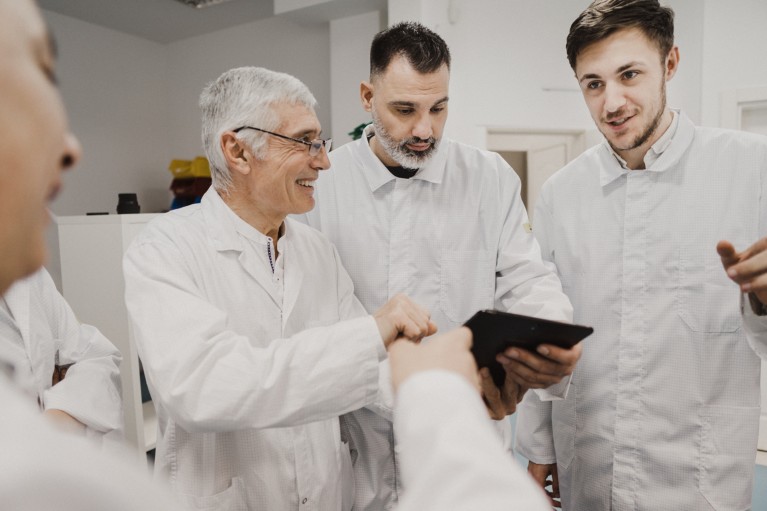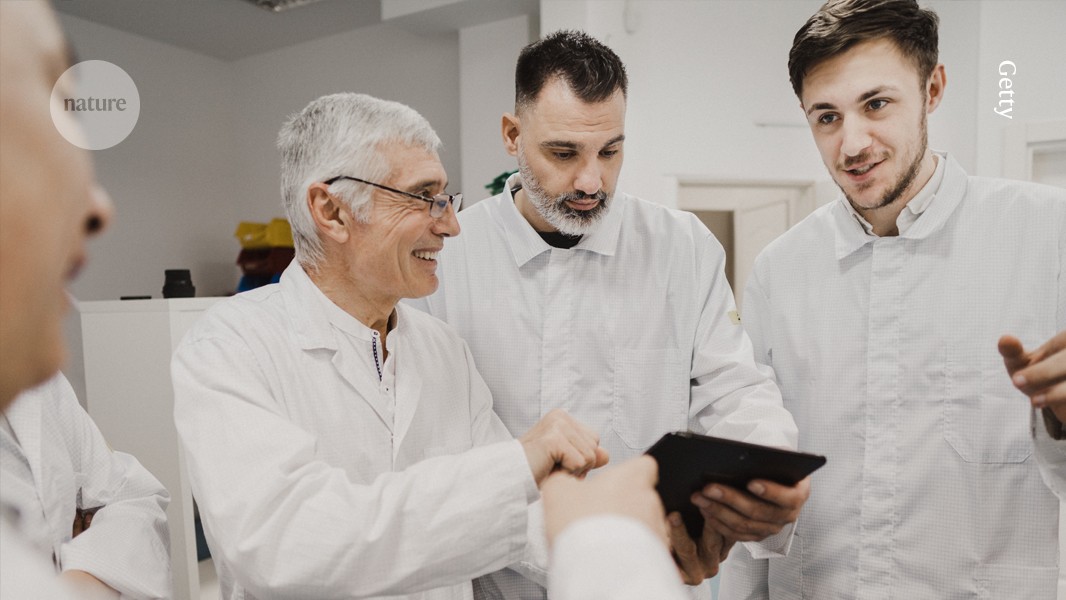
The age gap between principal investigators and their lab members gradually widens over time.Credit: Getty
When you start a laboratory as a principal investigator (PI), you might not be much older than a postdoc in your research group. This was certainly the case for both of us. But this demographic closeness changes as you continue along your career path. M.R. obtained his PhD in 1997 and has been running a lab for more than 25 years; H.S. got his PhD in 2008 and celebrated his 10-year lab anniversary last year. At one point, we both realized that we were as old as our PhD advisers had been when we were students. Now, some of the students we supervise are 20 or 30 years younger than us. We think that, over time, dynamics in the lab can change as a result of this shift in age and experience, because with it comes authority and respect.
The change doesn’t happen overnight, and isn’t always easy to spot. As a PI, our day-to-day job doesn’t feel that different. We continue to mentor people, teach, write grant proposals and lead on the science. But, somewhere along the way, things shifted in terms of how we’re seen by our students.
This shift in perception of the PI has a number of important consequences. There are always power dynamics and hierarchies in research labs, even if those at the top try to keep the atmosphere friendly, fun and relaxed. They are not as obvious at first, when the lab is small and everybody has comparable levels of experience, but, as we’ve learnt, the difference between PI and lab members widens gradually over the years.
With time, perceived authority increases and power differences become more pronounced, even if there are also generational changes in attitudes to hierarchies. This means that everything we say and do has the potential to take on a different meaning now compared with when we were at the start of our careers. Maybe it’s a flippant comment on a manuscript draft, maybe it’s forgetting to acknowledge the effort someone put into a figure, but every small thing can take on more significance. A student might end up asking themselves: does he not appreciate what I did? Am I not good enough? Meanwhile, meeting lab colleagues for lunch can be perceived as more akin to a formal audience with a superior than the casual fun it was at the beginning of the career.
We won’t always know what the consequences of a remark could be for someone when it happens in the context of a clearly perceived professional hierarchy. That’s bad enough, but possibly even worse is the possible decrease in push-back and open debate as the gap between PI and lab members widens; when people hold back on voicing dissenting opinions because they feel cowed by a perceived authority it stifles scientific progress. This can result in labs gradually drifting towards dysfunction. M.R. remembers one lab meeting when, with full confidence, he said something that several lab members in attendance knew to be incorrect, but they didn’t speak up until after the meeting, because they didn’t want to expose his error in front of the group. And H.S. was surprised to find lab members spending a disproportionate amount of time addressing off-hand suggestions he had made, even though they had quickly realized that the ideas didn’t lead anywhere.
A key area of interaction affected by a more pronounced professional hierarchy is criticism and feedback from the PI: on manuscripts, presentations and grant proposals, and during discussions in the lab. In our experience, a PI’s remarks can take on a much more serious meaning than intended, and tend to be perceived as much more absolute. When it comes to comments on rewriting a manuscript section, for example, suggestions can be taken by a junior lab colleague to mean ‘I failed, I didn’t live up to expectations’.


